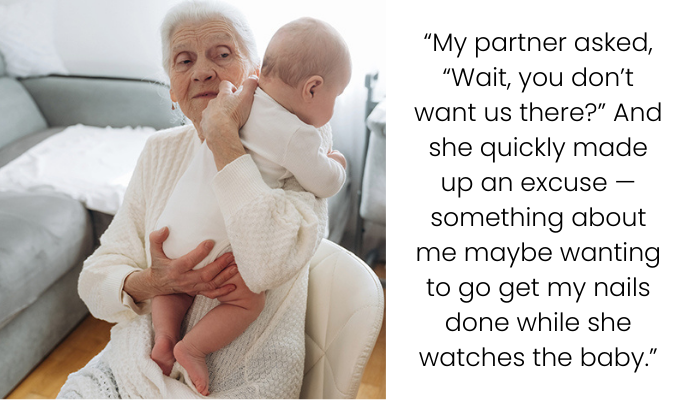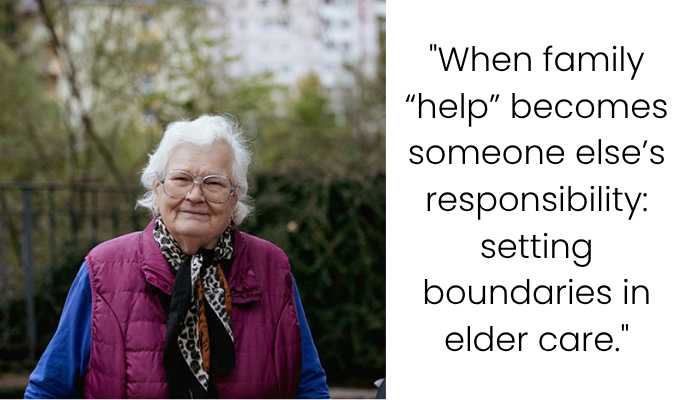When Everyone Wants Solo Time With My Baby — But Never Me
This story taps into something a lot of new parents silently struggle with — grandparents, especially grandmothers, feeling entitled to time alone with a baby… without the parent present. The OP, a new mom, shares how both her own mother and her mother-in-law recently tried to bypass her to get solo time with her daughter. At first, she thought these types of posts were just exaggerated internet drama — but after two eerily similar experiences, she gets it now.
Her mother, who she’s low contact with due to a toxic childhood, suggested swinging by to take the baby for a walk — and not even saying hi. Just take the stroller and go. It felt like an attempt to erase her presence entirely, and it stung. Meanwhile, her MIL started talking about coming over to “babysit” and take the baby out — again, without asking, and without including OP in the plans. At first glance it sounds like help. But dig deeper, and it’s clear: both women want a relationship with the baby without respecting or involving the mother. The emotional impact? Feeling erased, undermined, and bypassed by people who should be building trust — not cutting her out.
Grandparents often want special bonding time with their grandchildren, but sometimes it comes at the cost of hurting or sidelining the mother

A woman shared how her mother-in-law constantly gave unsolicited advice and how both her mom and MIL insisted on having alone time with her baby
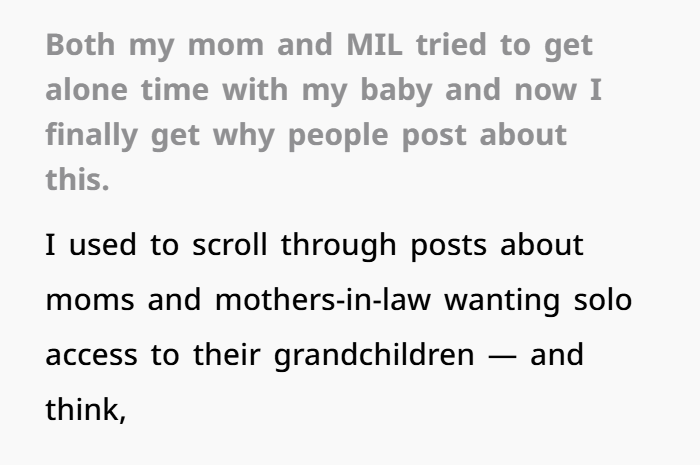

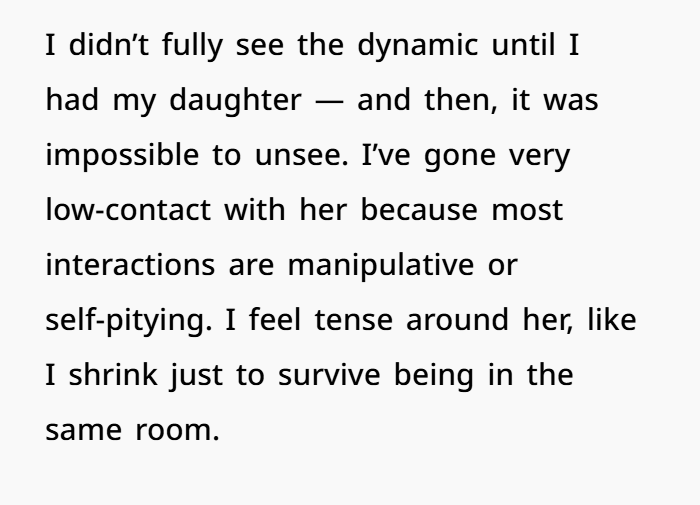
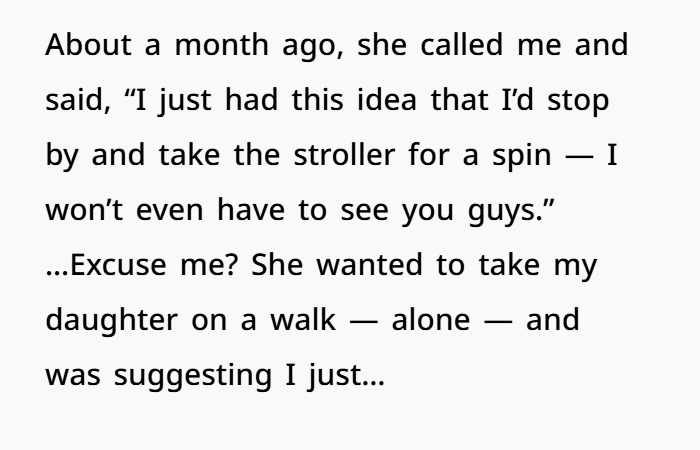

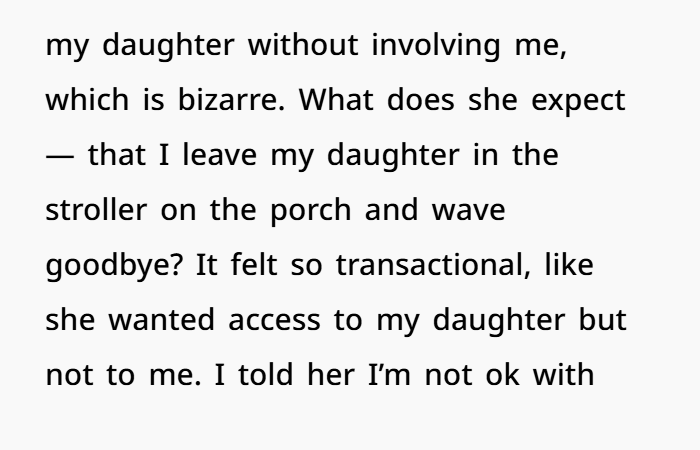
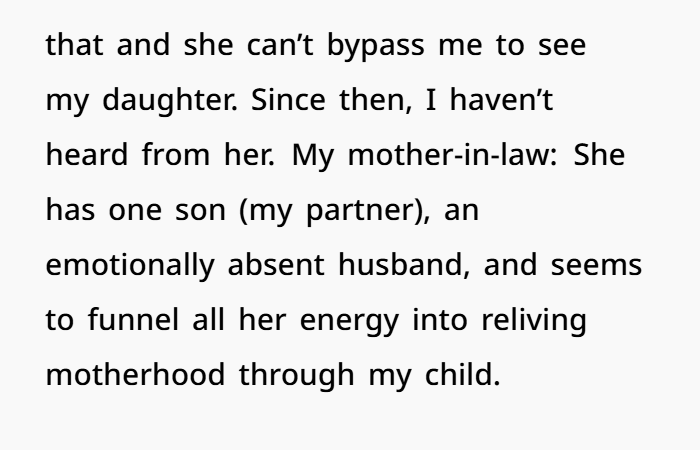
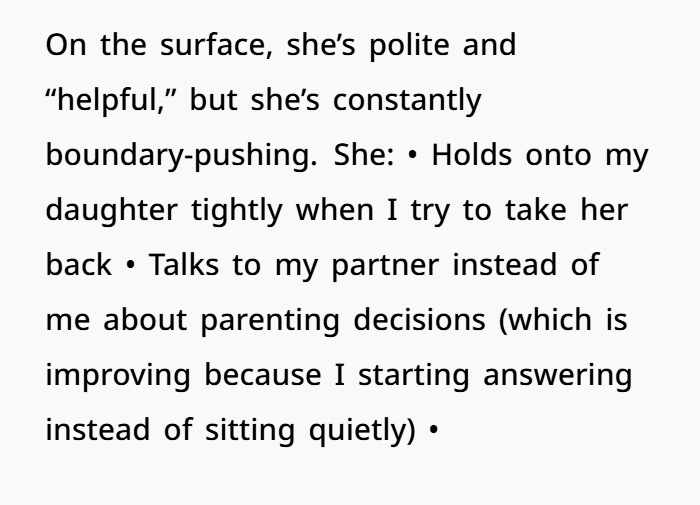

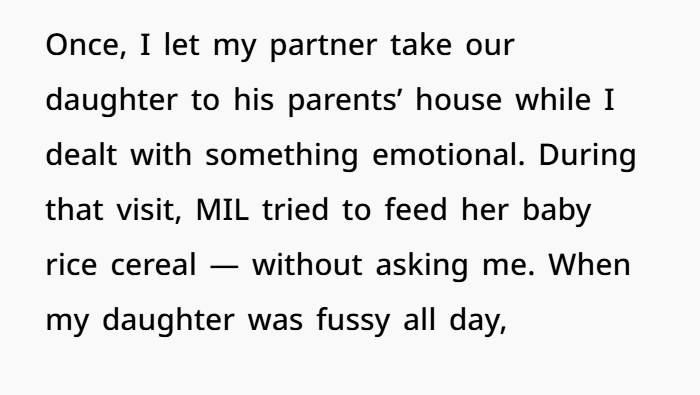

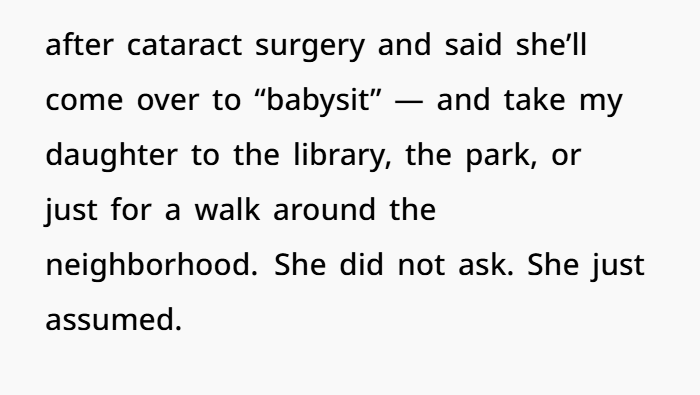
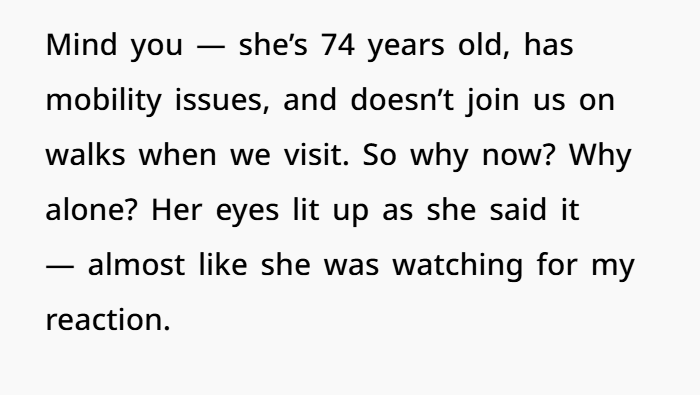
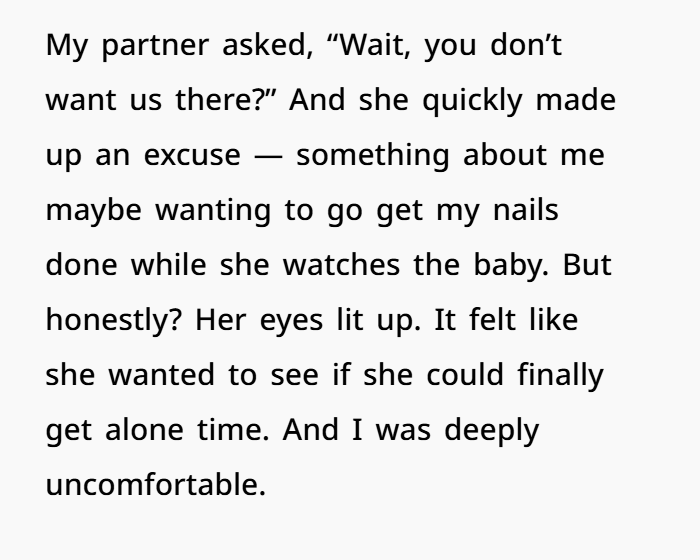


Alright, let’s get into it — because this is way more common than you’d think.

🚼 “Can I take the baby for a walk?” — Harmless or controlling?
On the surface, when a grandma says “I’ll take the baby out for a walk!” it might sound sweet. But when it’s said without asking, or comes from someone with a rocky relationship with the baby’s actual parents, it can feel loaded.
A lot of new moms report this kind of boundary-pushing behavior from grandmothers. Whether it’s their own mom or their MIL, it usually boils down to one thing: control. Not just over the baby, but over the new dynamic that motherhood introduces. Grandma used to be the center of the family — and now she’s not. Some handle that well. Others try to grab the baby and sidestep the mom.
In OP’s case, both women didn’t just ask to help or bond — they assumed or manipulated their way into solo time. And that crosses a line.
📉 Emotional impact of being treated like a gatekeeper
Here’s the thing: when you’re a new mom, your entire identity shifts. You’re healing, adjusting, figuring things out. And the last thing you need is to be treated like you’re just the holder of the baby, not the mother.
Feeling like you’re being bypassed — not included in plans, not respected as the primary parent — is disorienting. It can make you question your instincts. But let’s be real: those instincts are there for a reason.
According to licensed psychotherapist Nedra Glover Tawwab, when grandparents demand solo time but disregard boundaries, “they’re prioritizing their desires over the child’s safety and the parent’s trust.” That’s a red flag.
🧠 Why do grandmothers want alone time with babies anyway?
There’s a few psychological reasons behind this, especially with MILs and mothers who have unresolved emotional trauma:
- They want a “do-over” — Sometimes, older women who struggled with motherhood see grandchildren as a second chance. But the problem? They want the child without respecting the mother — you know, the actual person raising that baby.
- They want to reclaim relevance — After years of being the matriarch, watching their child become a parent can feel threatening. So they cling to the baby as a way of staying “central.”
- They’re used to being in charge — Especially moms who were controlling during their child’s upbringing. They think, “I raised you, so I know better,” and now apply that to your kid, too.
⚖️ Do grandparents have rights to see a baby without the parent?
This varies legally depending on your state or country, but in the U.S., parents have the primary legal right to decide who sees their child and when — including family members. Grandparents may petition for visitation in some extreme cases (like if a parent dies or cuts off all contact), but they can’t just demand unsupervised access.
In short: unless there’s a custody case or court order in place, you are 100% within your rights to say no to any kind of solo visits or outings.
You don’t even have to give a reason.
👶 Your baby is not a prop for grandma’s nostalgia
This one’s important. Babies are not emotional therapy dolls. They’re not trophies. And they’re not opportunities for people to rewrite their past. If someone — even your own mother — only wants access to your baby but can’t respect you as a person, that’s a boundary violation.

A popular quote in parenting circles puts it perfectly:
“You don’t get to be a grandmother if you can’t respect the mother.”
📣 What you can say when someone tries to bypass you
Need a script? Here’s a few non-confrontational ways to shut it down:
- “I’m not comfortable with anyone taking the baby out without me.”
- “I appreciate the offer, but solo time isn’t something we’re doing right now.”
- “We’re prioritizing bonding time as a family for now.”
- “When I feel ready, I’ll let you know. But it won’t be unsupervised.”
If they push back, that tells you everything you need to know.
💪 Breaking the cycle
The OP nailed something important: she’s not just saying “no” for no reason. She’s trying to break generational cycles. When you grow up with narcissistic or emotionally immature parents, becoming a parent yourself can wake you up. Suddenly, you see the dysfunction clearly. And it’s painful. But it also gives you the chance to do better — to protect your child in a way no one protected you.
Boundaries aren’t punishment. They’re protection.
Many readers suggested that the author avoid using any gifts given for the baby
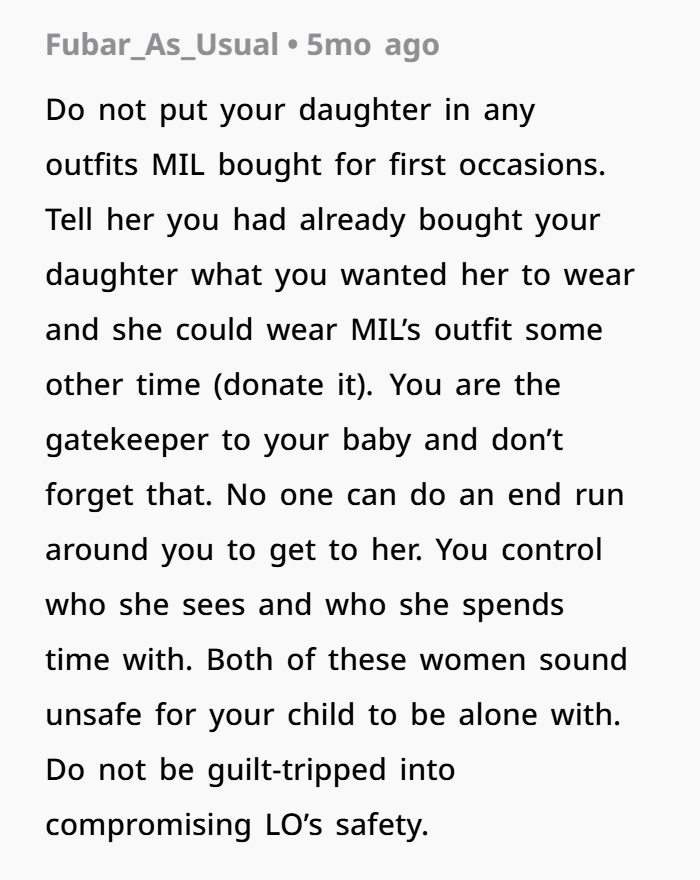
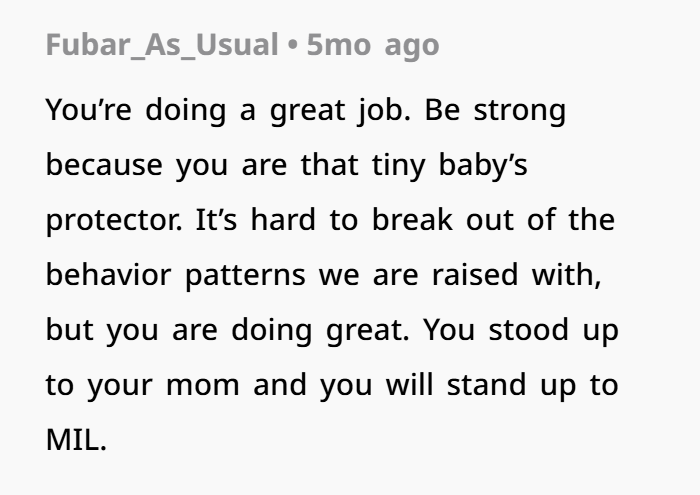
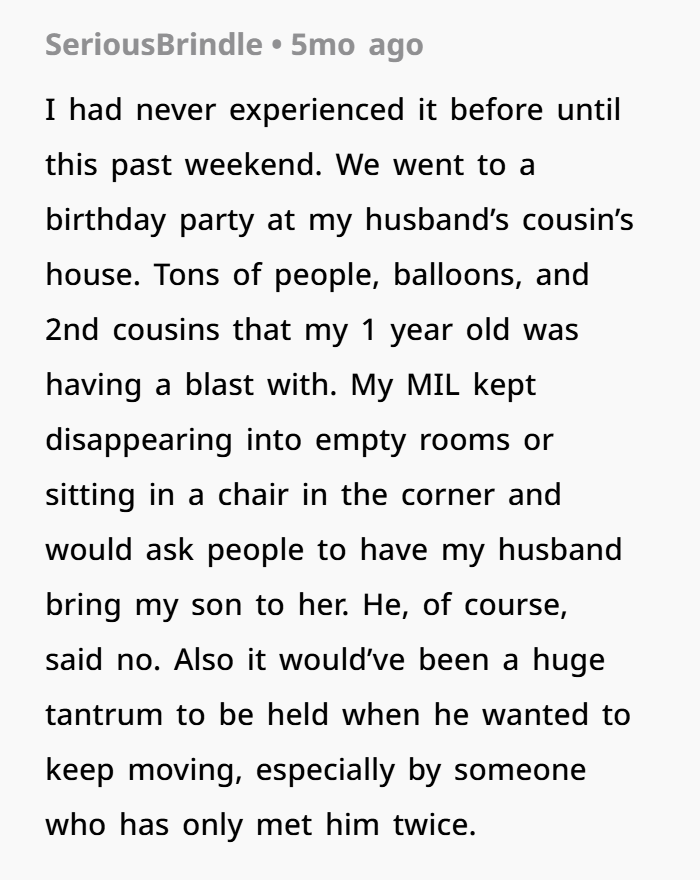


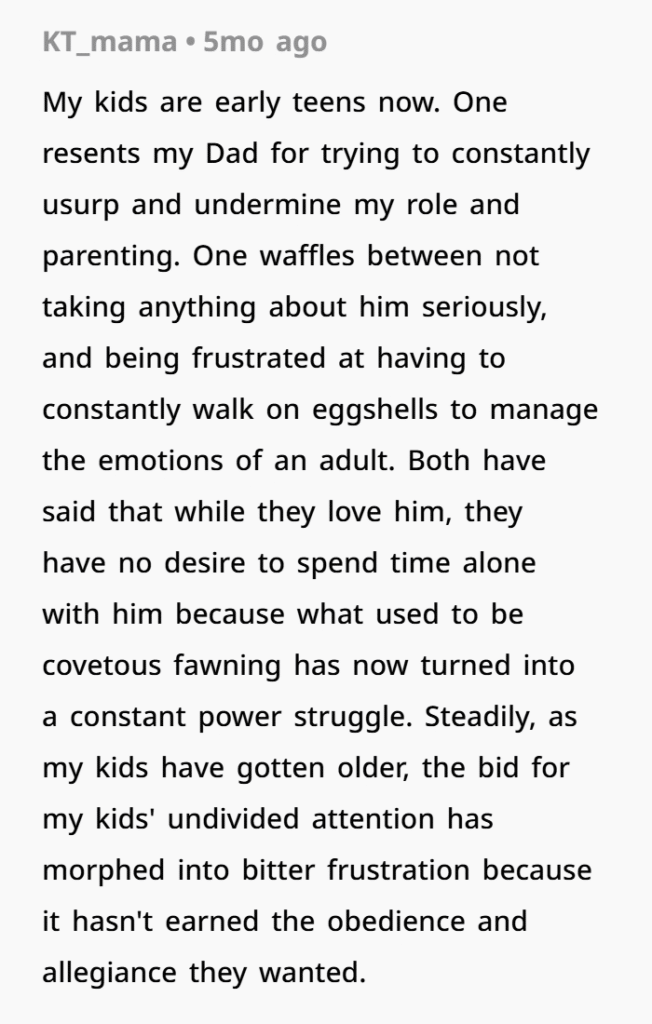
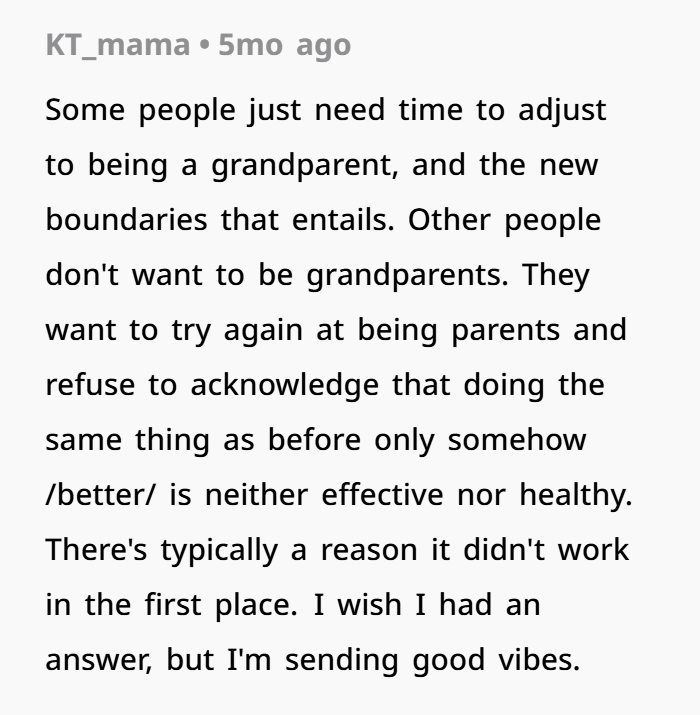
This isn’t just a story about two pushy grandmas. It’s about a woman reclaiming her power as a parent — and not letting anyone minimize her in her own story.
Whether it’s a mother who ignored you growing up or a MIL who thinks your baby is her second chance at motherhood… you are allowed to say no. You’re allowed to protect your peace. You’re allowed to be the main character in your child’s life — not the gatekeeper someone’s trying to sneak past.
And if they can’t handle that? That’s on them.

